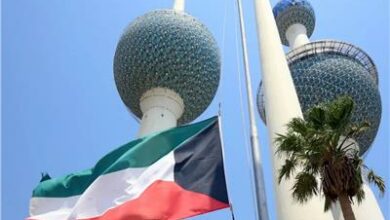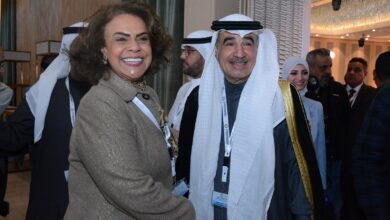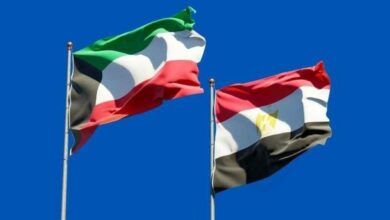The election victory by the Islamist-led opposition in Kuwait reflects public frustration with corruption, coupled with the rise of tribal power and unprecedented street protests, analysts say.
Voters in the Gulf emirate harshly punished the previous government and its allies over corruption charges that implicated at least 13 MPs, with fingers also pointed at senior government officials, they said.
Women, who made history in the 2009 vote by winning four seats for the first time, failed to win a single seat, paying the price for the blind support of most of the female MPs for the government, the analysts said.
The Islamist-led opposition won a majority 34 seats in the 50-member parliament in Thursday's snap election, with 21 seats won by tribal candidates, half of them Islamists.
Islamists won a total of 23 seats.
"It's a triumph for Islamists and tribes combining to oppose the government … and a punishment for the previous government over allegations of corruption," independent political analyst Ayed al-Manna told AFP.
Tribes, which constitute 55 percent of Kuwait's 1.17-million population, were historically the main supporters of the government and the Sabah ruling family, but that has changed in recent years.
Manna said the unprecedented youth-led street protests, inspired by the Arab Spring, played a decisive role in the opposition's victory.
Islamists and the Popular Action Bloc, another major component of the opposition, strongly supported the protests which demanded far-reaching political reforms, including the establishment of a constitutional monarchy.
As a result of the protests, the previous government led by Sheikh Nasser Mohamed al-Ahmed al-Sabah resigned in late November. A week later, Kuwait's emir dissolved the parliament and called for early polls.
"The Arab Spring has reached Kuwait, but in Kuwaiti style … calm, peaceful and legal," former Islamist MP Mubarak al-Duwailah wrote in Al-Qabas daily on Sunday.
"The people have expressed their support for the Islamist forces," he said.
Pro-government MPs were reduced to a small minority, while only two of 13 former MPs questioned by the public prosecutor over corruption charges were re-elected. The remainder either lost or did not contest the poll.
"The tribes are now the most powerful [group] within the opposition," said liberal political analyst Shamlan Issa, who cautioned that the loose opposition coalition remains "divided" with different political agendas.
Liberals were also big losers in the election, being reduced to just two seats from five previously. Many liberal activists and writers predict that the new parliament will not last long because it is packed with hardliners.
"We are headed for an extremely hot political season after a brief honeymoon … parliament may not survive for two years," said Issa, a political science professor at Kuwait University.
Manna, however, said that Kuwait's future hangs on the "government's ability to deal and coexist with the Islamists."
OPEC member Kuwait has been rocked by a series of political crises over the past six years, leading to the resignation of seven governments and the dissolution of parliament four times.




